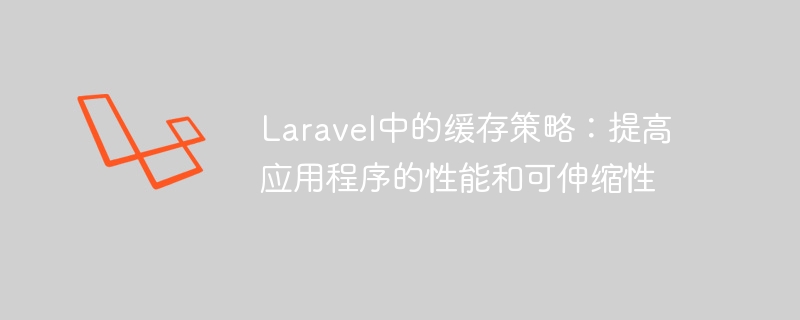

Caching Strategies in Laravel: Improving Application Performance and Scalability
Introduction
When developing web applications, performance and scalability are crucial factor. As applications grow in size, so does the amount of data and computation, which can lead to slower application response times and impact the user experience. To improve application performance and scalability, we can use caching strategies to speed up data access and processing.
What is cache?
Cache is a technology that stores calculation results or data in memory. After the data is cached, the next time the same data is requested, it can be obtained directly from the cache without the need to perform complex calculations or query from the database again.
Why use caching?
Using cache can greatly speed up the response time of the application and improve the user experience. By reducing frequent access to the database, caching can reduce database load and improve application scalability and fault tolerance.
Using caching in Laravel
Laravel is a popular PHP framework that provides a powerful caching system. Below we will introduce how to use caching in Laravel to improve the performance of your application.
Sample code:
return [ // ... 'default' => env('CACHE_DRIVER', 'file'), // ... 'stores' => [ // ... 'file' => [ 'driver' => 'file', 'path' => storage_path('framework/cache/data'), ], // ... ], ];
Sample code:
// 缓存数据 Cache::put('key', 'value', $minutes); // 检查缓存是否存在 if (Cache::has('key')) { // 从缓存中获取数据 $value = Cache::get('key'); }
Sample code:
public function index() { // 检查缓存是否已存在 if (Cache::has('home_page')) { // 从缓存中获取响应并返回 return Cache::get('home_page'); } // 处理数据并返回响应 $data = // 获取数据的逻辑 $view = view('home.index', $data)->render(); // 将响应缓存起来 Cache::put('home_page', $view, $minutes); return $view; }
Sample code:
// 清除缓存 Cache::forget('key');
Conclusion
By using caching strategies appropriately, we can significantly improve the performance and scalability of our application. Laravel provides a powerful and flexible caching system. Through simple configuration and use of the cache facade, we can easily implement data and response caching. If your application is having issues with performance and scalability, try using caching in Laravel to boost your application.
Reference link:
The above is the detailed content of Caching Strategies in Laravel: Improving Application Performance and Scalability. For more information, please follow other related articles on the PHP Chinese website!




